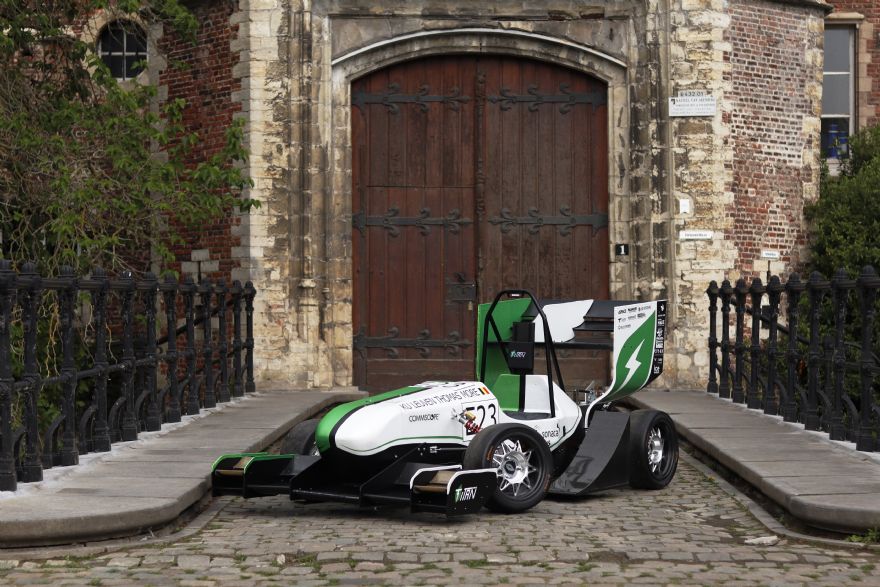
Belgium-based
EconCore, a ‘specialist provider of technology for cost-efficient continuous production of honeycomb cores’, which developed the award-nominated rPET honeycomb material, is being used by the
Formula Electric Belgium team (it will participate in several international events of the Formula Student competition) for its Titan racing car, which was unveiled to the world at the end of May. Based on PET material (polyethylene terephthalate), the rPET honeycomb cores are made up of 100% recycled material, predominantly sourced from non-food post-consumer and industrial PET waste streams.
Due to its mechanical performance, low weight, and high-temperature stability, rPET is ‘the material of choice’ for a range of applications, including automotive, transportation, building and construction, industrial packaging, furniture — and motorsport.
Indeed, EconCore’s rPET honeycomb cores are currently being used by Formula Electric Belgium within the front wings of its racing car; the cores are covered with a wing skin made of natural flax fibre. Last year, the team used carbon-fibre reinforced composites for the skins of the wing profile, in conjunction with aluminium stiffeners similar to those found in aeroplane wings.
Formula Electric Belgium’s commitment to ‘Green Innovation meets Performance’ saw the team adopt a more-sustainable approach without compromising on performance, substituting the aluminium stiffeners with rPET honeycomb to produce a sandwich panel that was not only lighter and more rigid but also reduced the wings weight by 26% compared to the same size wing from last year.
Moreover, the rigidity of the front wing component is such that it can withstand forces equivalent to almost 1,000-times its own weight. Under a three-point bending test the wing could withstand 46kg of force.
For the 2022 season, Formula Electric Belgium’s use of lightweight materials has enabled it to produce a racing car with a total weight of just 220kg; and while Colin Chapman, the founder of Lotus Cars, said: “Adding power makes you faster on the straights, subtracting weight makes you faster everywhere” — Formula Electric Belgium certainly is not lacking power, achieving a 0-100kph time of 2.5sec.
Wouter Winant, EconCore’s technical manager, said: “With the rPET honeycomb core, Formula Electric Belgium was able to produce a highly rigid, lightweight front wing component that weighed just 50gm yet achieved optimal performance — and using sustainable materials.”
Karel Van Wambeke, an aerodynamics engineer at Formula Electric Belgium, added: “The rPET honeycomb core was an exciting and interesting material to work with and the entire EconCore team were enthusiastic in supporting us while we used their facilities. We can’t wait to put our hard work to the test and see how we perform in our first competition in the Netherlands, which will take place from 11 to 14 July in Assen.”